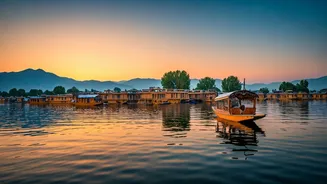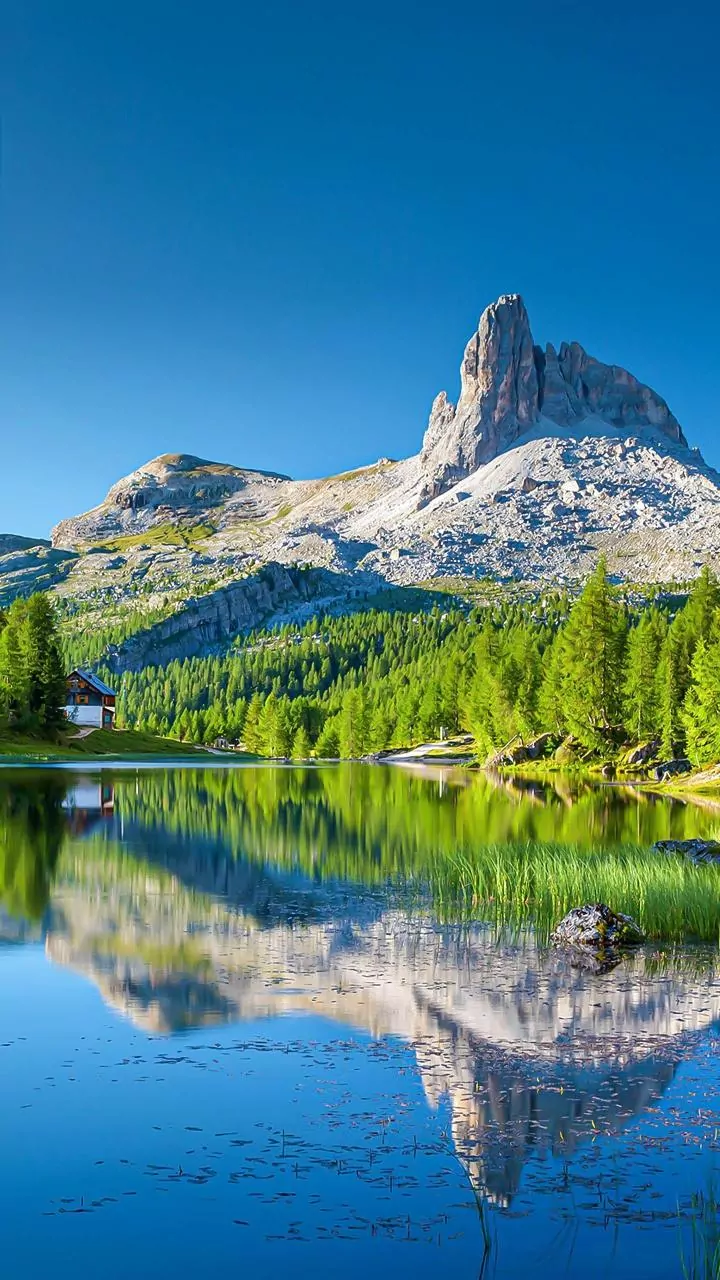An Introduction
Dal Lake, nestled in the heart of Srinagar, is much more than just a body of water; it’s a vibrant ecosystem and a cultural hub. It's renowned for its
stunning natural beauty, including the floating gardens (Rad) and the houseboats. The lake’s serene waters reflect the surrounding mountains, offering a picturesque panorama. The lake also has a strong cultural significance, with the traditional Shikara boats and the local way of life playing an integral part of its identity. It has become a crucial element of the tourism sector and the local economy. Dal Lake's beauty has inspired poets, artists, and travelers for generations, making it a beloved destination.
Natural Beauty Unveiled
The natural beauty of Dal Lake is one of its main attractions. The lake's surroundings consist of Mughal gardens, such as the Shalimar Bagh and Nishat Bagh, which provide a beautiful backdrop. The changing seasons bring a variety of scenery, from the blooming lotus flowers in summer to the stunning views of snow-covered mountains in winter. The floating gardens, known as Rad, are another remarkable feature, where vegetables are cultivated. These gardens contribute to the lake's ecosystem and also provide a unique visual appeal. The reflection of the Pir Panjal mountains in the lake enhances the enchanting scenery, capturing the hearts of photographers and nature lovers. The beauty of the lake is best experienced during sunrise and sunset, when the light paints the water with vivid colors.
Houseboats and Shikaras
Houseboats and Shikaras are integral to the Dal Lake experience, offering a unique way to enjoy the beauty of the lake. Houseboats, traditionally made from cedar wood, provide a comfortable stay. They often include ornately decorated interiors and balconies with views of the lake. Shikaras, the traditional gondola-like boats, are used for transportation, shopping, and tours. They allow visitors to navigate the narrow waterways, visit floating markets, and enjoy the views. Vendors sell flowers, handicrafts, and local foods from their Shikaras, providing a lively atmosphere. A ride on a Shikara, especially during sunrise or sunset, is a memorable experience. The houseboats and Shikaras are not just modes of transport; they embody the culture and lifestyle of Dal Lake, offering a glimpse into local traditions and hospitality.
Activities and Experiences
Dal Lake offers various activities to suit different interests. Boat rides on Shikaras are a must-do, allowing visitors to explore the lake at their own pace. Water skiing, kayaking, and canoeing are popular among adventure enthusiasts. Visitors can also enjoy fishing and bird watching, with a variety of bird species found in the area. Shopping in the floating markets is a unique experience, with vendors selling a variety of items, from saffron and spices to handicrafts. Photography enthusiasts will find countless opportunities to capture the natural beauty of the lake and its surroundings. For those seeking relaxation, simply lounging on a houseboat or the banks of the lake offers a perfect way to unwind and enjoy the tranquility. The activities available on Dal Lake cater to all age groups and interests, ensuring a memorable visit.
Cultural Significance
Dal Lake is deeply entwined with the local culture and way of life in Srinagar. The lake has been a source of livelihood and inspiration for generations, with many families depending on fishing, tourism, and boat-related businesses. The lake's waters are considered sacred, and its surroundings are home to several historic mosques and shrines. The local communities have a unique relationship with the lake, and their traditions, festivals, and celebrations are often centered around it. The floating gardens and houseboats showcase the resourcefulness and ingenuity of the locals. Moreover, the lake has been a prominent subject in Kashmiri literature, art, and cinema, further cementing its cultural value. Dal Lake, therefore, is more than a natural landmark; it is a symbol of Kashmiri identity and heritage.
Challenges and Conservation
Dal Lake faces several environmental challenges, including pollution, encroachment, and siltation. The increasing population and tourism have put a strain on the lake’s ecosystem, leading to water degradation and loss of biodiversity. Pollution from household waste, sewage, and industrial runoff continues to be a concern. Encroachment of the lake's banks for construction and other purposes also poses a threat. Siltation, caused by soil erosion, reduces the lake's depth and affects its natural processes. Various conservation efforts, including cleaning campaigns, waste management programs, and awareness initiatives, have been undertaken to address these issues. The government and local communities are working together to promote sustainable tourism practices and protect the lake for future generations. The success of these initiatives relies on the collective efforts of everyone, from residents to tourists, to preserve this natural treasure.



















![[WATCH] T20 World Cup 2026: Gautam Gambhir hosts dinner for Team India players ahead of Namibia clash](https://g-mob.glance-cdn.com/public/fc/image/7gXS1xdhs5Q0.webp)


